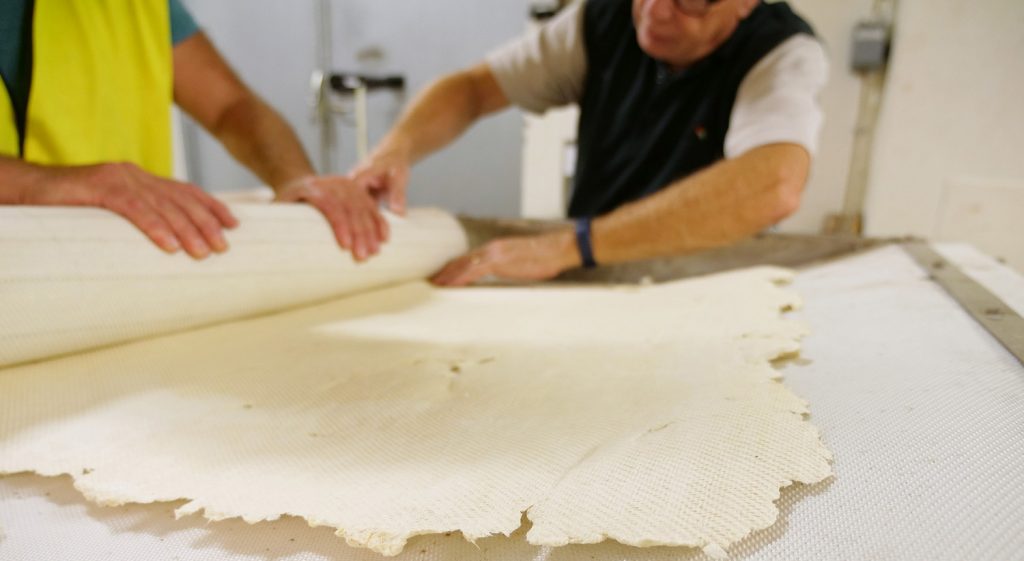Clearing up oil spills can be much simpler. Utilising nature’s own solutions has enabled Nordic BioEngineering to develop a bio-based absorbent that absorbs oil but rejects water. Thanks to the right contacts, the product is now about to enter a promising market.
The Bioeconomy Region Project can open doors for those who want to provide forest-based innovations. This was the case for Nordic BioEngineering, which recently took the step from lab to pilot production via the project’s network of contacts. This time it was Rottneros pulp mill which opened the door, with Nordic BioEngineering temporarily moving in.

From left: Magnus Persson, Innovation Advisor at Paper Province, Kurt Härdig, consultant, and Erik Josephsson, CEO of Nordic BioEngineering.
Nordic BioEngineering’s Innovation is an absorbent that can make oil sanitation more efficient and environmentally friendly.
Oil spills from industry and transportation have an adverse impact on the environment, while simultaneously consuming a lot of time and money. Decontaminating oil from water is especially demanding.
It is also costly and rarely particularly environmentally friendly to dispose of the waste that is left behind.
However, sometimes nature itself has the smartest solutions to human problems and Nordic BioEngineering is a brilliant example. Their decontamination products are based on components from Nature’s own ecocycle.
The process combines cellulose with a number of other natural components to produce an efficient oil absorber that is arousing major curiosity in the market. The method has been developed in collaboration with the Division of Fibre and Polymer Technology at the Royal Institute of Technology.
“The oil stays in the absorber even if it comes into contact with water, and it stays afloat for a long time,” explains the company’s CEO and co-founder Erik Josephsson.
Nils Hauri is the Director of Innovation and Strategic Projects at Rottneros and he feels that helping Nordic BioEngineering with space, process knowledge and raw materials is an obvious thing to do.
“We work to refine forest materials and think that this is a promising path for future cooperation. Furthermore, we know how difficult it can be to go from lab to production, so it feels good to be able to help. It is important to think outside the box,” Nils Hauri says.
Another good thing about the product is that most of the oil can be squeezed out and reused after the clean-up. The small amount that remains in the absorber can be sold on as fuel to thermal power plants.
“There is a clear interest from the emergency services and companies that work with waste and transport. We are now going to scale this up and deliver test products to our clients. This has the potential to be really big,” Erik Josephsson says.

Pilot production of the new absorbent. The pulp comes directly from the mill and is mixed with Nordic BioEngineering’s unique additives. The mixture is pressed and dried to become a paper-like absorbent which makes oil decontamination more efficient, both on land and in water.